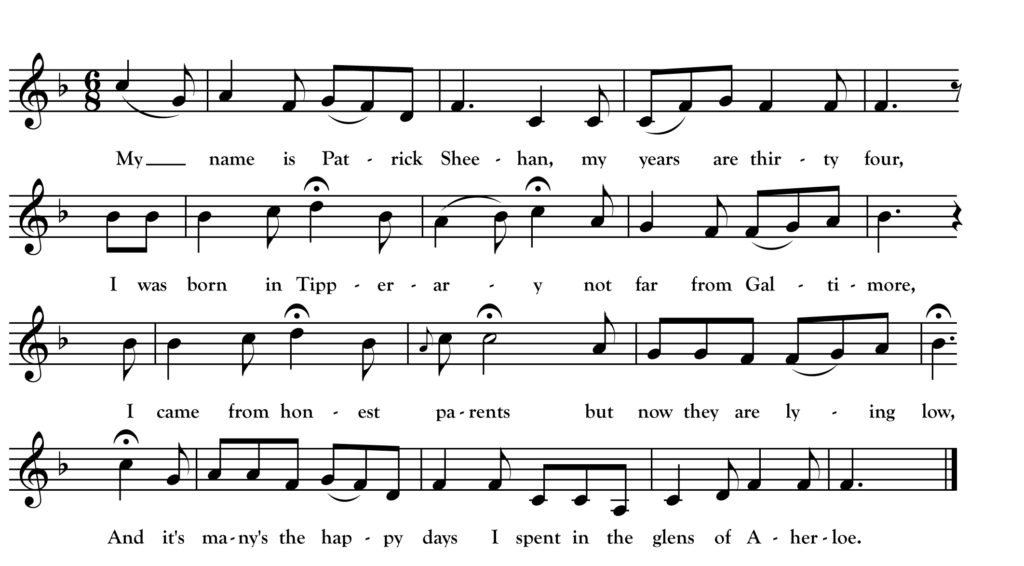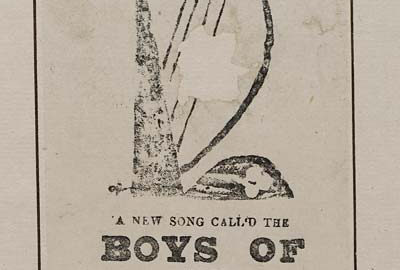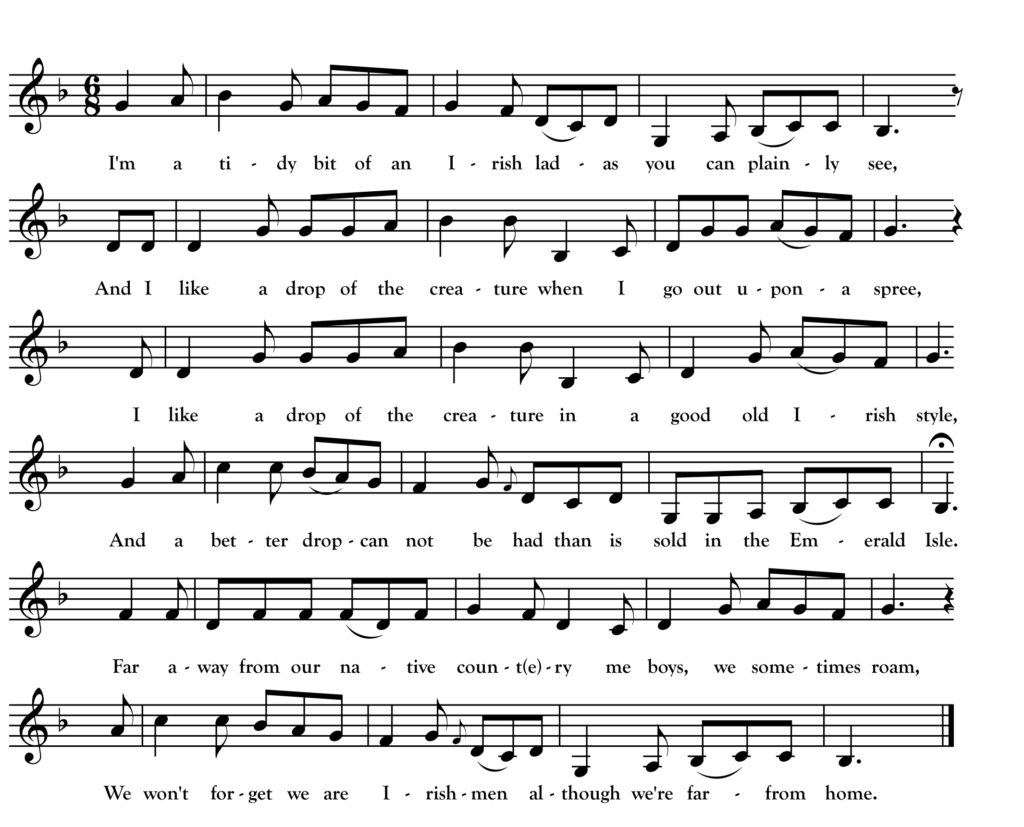Patrick Sheehan

My name is Patrick Sheehan, my years are thirty-four,
I was born in Tipperary, not far from Galtimore;
I came of honest parents, but now they are lying low,
And it’s many the happy days I spent in the glens of Aherloe.
My father died, I closed his eyes outside our cabin door,
The landlord and the sheriff, too, were there the day before;
It was then my poor old mother and sisters, two, also,
With broken hearts were forced to leave the glens of Aherloe.
Then for three months in search of work I rambled far and near,
Then I went unto the poor house to see my mother dear;
The news I heard nigh broke my heart, but yet in all my woe,
I blest the friends that made their graves in the glens of Aherloe.
Bereft of home, of kith and kin, and plenty all around,
I starved within my cabin and slept upon the ground;
But cruel as my lot it was, I ne’er did hardships know,
Until I joined the English army far away from Aherloe.
“Get up, you lazy Irish dog,” the corporal he came around,
“Don’t you hear the bugle, the called to arms, sound?”
Alas, I had been dreaming of days long, long ago,
And I woke before Sebastapool, and not in Aherloe.
I groped for my musket, how dark I thought the night!
Oh, blessed God, it was not dark, it was the broad daylight;
And when I found that I was blind, the tears they down did flow,
And I longed for even a pauper’s grave in the glens of Aherloe.
Now a poor, forlorn mendicant, I wander through the streets,
My nine months’ pension being out, I beg from all I meet;
But since I joined my country’s tyrants my face I ne’er will show,
To the kind and loving neighbors in the glens of Aherloe.
Oh, Blessed Virgin Mary, mine is a mournful tale,
A poor blind prisoner here I lie in Dublin’s dreary jail;
Struck blind within the trenches where I never feared the foe,
But now I never more will see my own sweet Aherloe.
Now, youths and fellow countrymen, take heed to what I say.
Don’t ever join the English ranks or you’ll surely rue the day;
And if ever you are tempted a-soldiering to go,
Remember poor blind Sheehan and the glens of Aherloe.
We have another of Michael Dean’s songs with literary connections this month. The text of “Patrick Sheehan” aka “The Glens of Aherlow” is known to be the work of Irish revolutionary, novelist and poet Charles Kickham (1828-82). Kickham was inspired to write the song by a real life Patrick Sheehan – a blind veteran of the Crimean War (1853-56) arrested for begging on Grafton Street in Dublin in 1857. Kickham published his text that year under the pseudonym “Darby Ryan Junior” (a reference to an earlier Irish balladeer who composed “The Peeler and the Goat”). Song historians have since discerned that the real Patrick Sheehan was likely not from Tipperary but Tipp was Kickham’s home county and probably not the only poetic license taken in the composition.

photo from the Library of Trinity College Dublin Digital Collections
The song was printed as a broadside and sung widely in Ireland. Helen Hartness Flanders found at least four versions among her New England singers. “Yankee” John Galusha (1859-1950) of Minerva, New York was recorded singing the song in 1949 and it’s the Galusha melody that I have married to Dean’s text above. Dean himself was born in 1858 in Madrid, NY on the opposite side of the Adirondacks from Galusha.




